Rebecca Wertheimer: Survivor
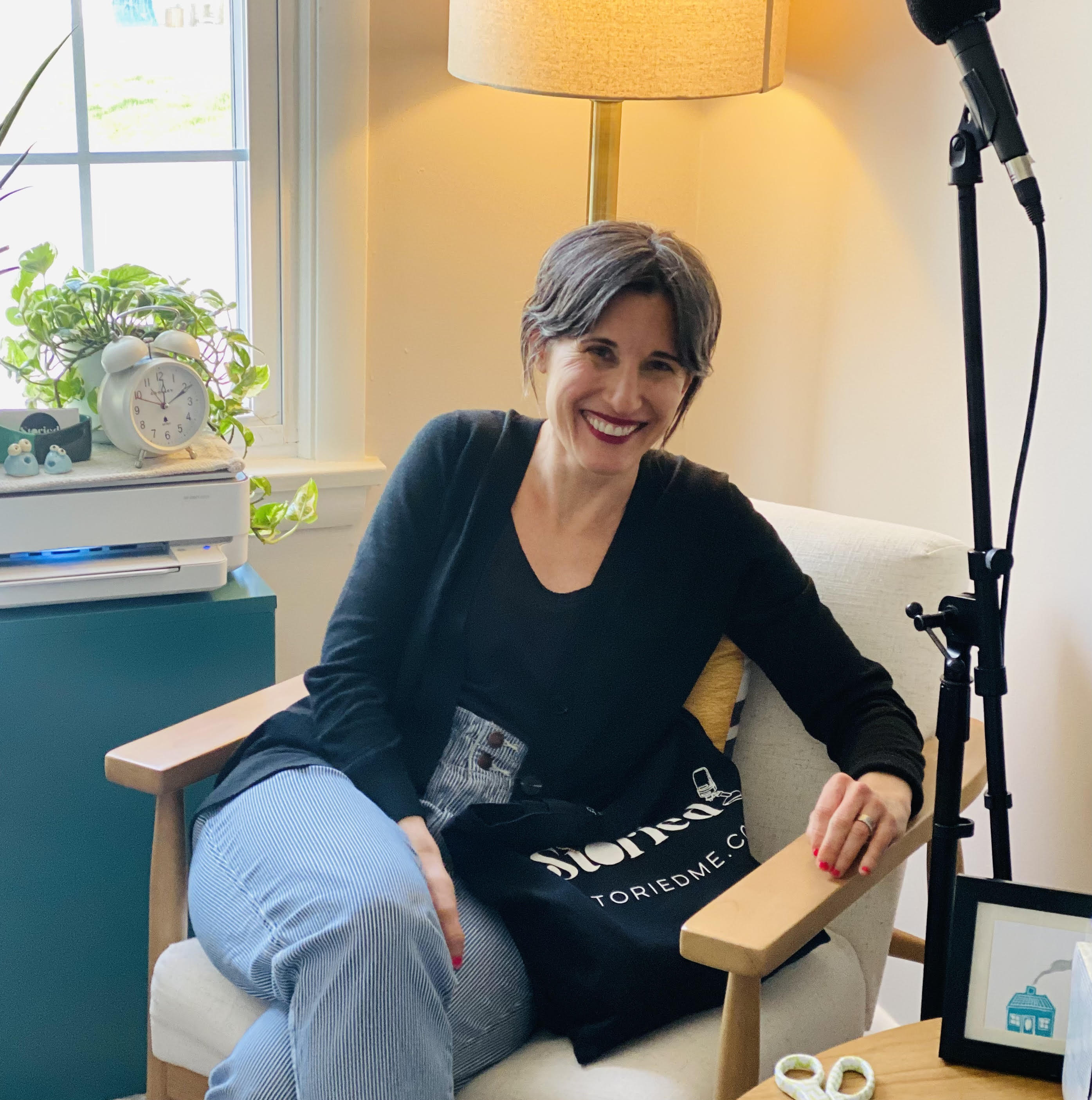
Rebecca Wertheimer was diagnosed with breast cancer in 2016. However, this was not the beginning of her cancer journey. Her story starts in 1988 in Burlington, Vermont when her mother was diagnosed with breast cancer. Rebecca was in 4th grade, and it was at this point that she had her first introduction to the disease that would linger around her family for years to come.
“I remember. I was in fourth grade, my mom had breast cancer. I was 10, I thought she was going to die. I had no idea what was going on. I remember it was the first time I had ever seen my dad cry. So, she had one breast removed - a bilateral mastectomy. It was a really scary time.”
After a successful surgery, her mother was cancer free and life returned to normal for the family. Rebecca graduated from college and moved to Maine in 2000. Shortly thereafter, her mother was diagnosed with breast cancer for a second time. Rebecca’s mother received a second bilateral mastectomy, and again – life returned to normal. However, this time Rebecca was in her twenties and understood the hereditary implications of breast cancer.
“The first time she had cancer, she was 34. The second time she was 52. So, I was in my twenties when she had it the second time. I started getting mammograms when I was 30, at the time you didn't get them until you were 40, but I was getting them about a decade earlier.”
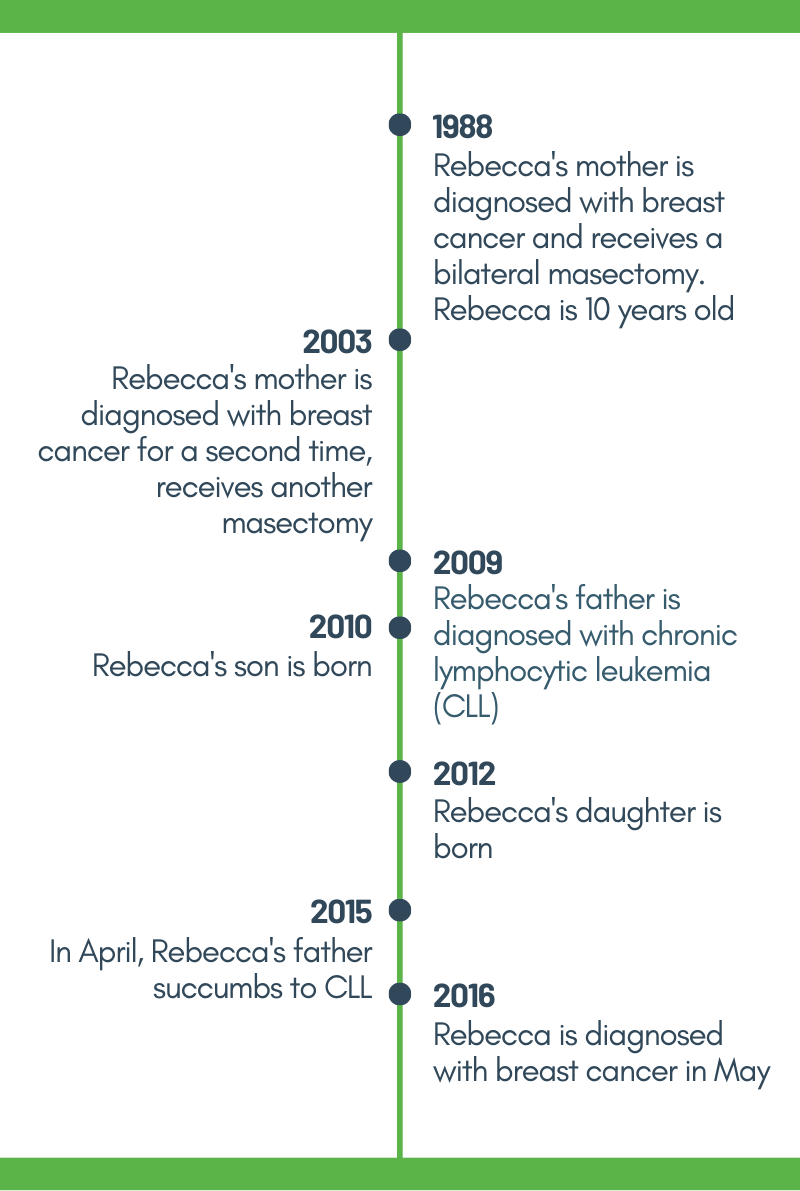
In 2009, Rebecca's family had their third run-in with cancer. Only this time it was chronic lymphocytic leukemia, and it was Rebecca’s father who was diagnosed.
“He had gotten labs done on an annual checkup and his white blood cell count was funny. He had chronic lymphocytic leukemia. It was very well managed for a while, and then he basically got sick. He had a couple rounds of chemo, he was then in a clinical trial - and then he got sick really quickly.”
After a 6-year battle, Rebecca’s father succumbed to the disease in April of 2015. At the time of his passing, Rebecca was in her mid-thirties with two children of her own. The disease had been prevalent in her life since the age of 10, but this was the first time it had taken a loved one. By now, Rebecca was all too familiar with cancer’s indiscretion. She was still grieving the loss of her father when a routine mammogram detected something unusual.
“I was working full time. I had two young kids who were three and five at the time. I had gone in for my annual mammogram and they were following me more closely again because of my mom's history. So, I would get a mammogram once a year and I would get an ultrasound once a year - every six months I was kind of being followed. But I had a number of years where I was pregnant and then I was breastfeeding, where I wasn't getting screened. In May of 2016 I had a mammogram, it looked questionable. I went back and had another one. Then I had to have a biopsy, and then I had to wait a couple of weeks for the results.”
The mammogram detected two sites of cancer in one of her breasts. Just 13 months after the loss of her father, Rebecca was diagnosed with breast cancer.
“I was in a meeting when she called me. I just remember taking a sticky note and trying to write down what she was telling me, but my brain was swirling. I stepped back into the meeting, I got my things and I went home and my husband met me there.”
Rebecca was no stranger to breast cancer. She had seen her mother go through it twice, and she understood that as her daughter, she was at risk. Even so, Rebecca admits she was overwhelmed by what followed.
“It was like, okay I get the call at work. ‘You have cancer.’ Okay. This is life changing. So, for the next day, it was - ‘I want you to come in and meet with the surgeon, and this person, and that person, and the scheduling person's going to reach out to you, and the social worker's here to help you with insurance stuff…”. it was like, whoa, it just kind of hits you. It’s their job, but to me it felt like, ‘oh my God, I'm on this train now.’ Like yesterday I wasn't sick, but today I am sick, and now I have all these appointments that I have to go do all this stuff. It felt super quick and rushed. Overwhelming is really what it was. It was overwhelming.”
But this wasn’t the hardest part for Rebecca. For the first time, she was on the other side of the diagnosis. It had come full circle, and it was her turn to initiate the impossible conversation that had become all too familiar.
“I remember sitting in the parking lot at the cancer center in Scarborough and calling my mom and having to tell her that I had breast cancer. She was still really grieving the loss of my dad, and because she had breast cancer – I think that she felt some kind of guilt that I had it. It was a really, really challenging time.”

That night, Rebecca and her husband tried to explain it to their children, ages five and three at the time.
“We struggled with how to tell them. I remember saying, you know, ‘I have a part of my body that is not working right. I’m sick and I have to have surgery and it's scary, but I'm going to, you know, things will be okay.’ Because they were so young, that was enough for them at the time. I think that had they been the age they are now, it'd be a totally different story, I’d have to explain it in a different way and that they would understand it in a different way. But at the time, I think that they just sensed that I was sad and that I was scared, but that things were going to be okay.”
Rebecca assured her children that she would be okay, but in reality, her situation wasn’t as clear.
“That interim time when everything was unknown, before I knew that I was going to be okay – that was really hard for me. Just that reality of ‘what if I don't get to see my kids grow up?’”
Rebecca already knew how quickly life changes following a diagnosis. She was aware of how cancer would be influencing her plans for the foreseeable future. But not yet, her son needed to be registered for kindergarten.
“I had this period of time where I was diagnosed and then I had to get the surgery scheduled and everything happened so quickly. But in the meantime, and it sound so stupid now - but I had to register my son for kindergarten. You bring them in and they get to meet with all the teachers and they do little assessments and I was really clear that I wanted to be there for his kindergarten assessment, which was in late May or early June. So, I remember actually asking to push my surgery back a week so that I could go to his kindergarten assessment.”
At the assessment, Rebecca met one of the other moms, Tatiana. As fate will have it, the two crossed paths again months later as Tatiana was facilitating a group at the Center For Grieving Children that Rebecca had signed up for.
“It was like ‘Welcome to Portland!' It's just one big, small town. You never know who you're gonna bump into.”
The following week, Rebecca underwent surgery at New England Cancer Specialists in Scarborough. Although the cancer was only prevalent in one breast, she opted to have a double mastectomy to reduce her risk of reoccurrence.
“I said just take everything so that I don't have to worry about it anymore. I had a double mastectomy and reconstruction. I was then put on Tamoxifen, which is this horrible drug. Tamoxifen is supposed to reduce the risk of recurrence of breast cancer. I thought, ‘how can I get breast cancer again? I don't have breasts anymore, I don't have breast tissue.’ They said, ‘well cancer cells can live in your chest wall, and sometimes they can jump to other places and you can get cancer again.’”
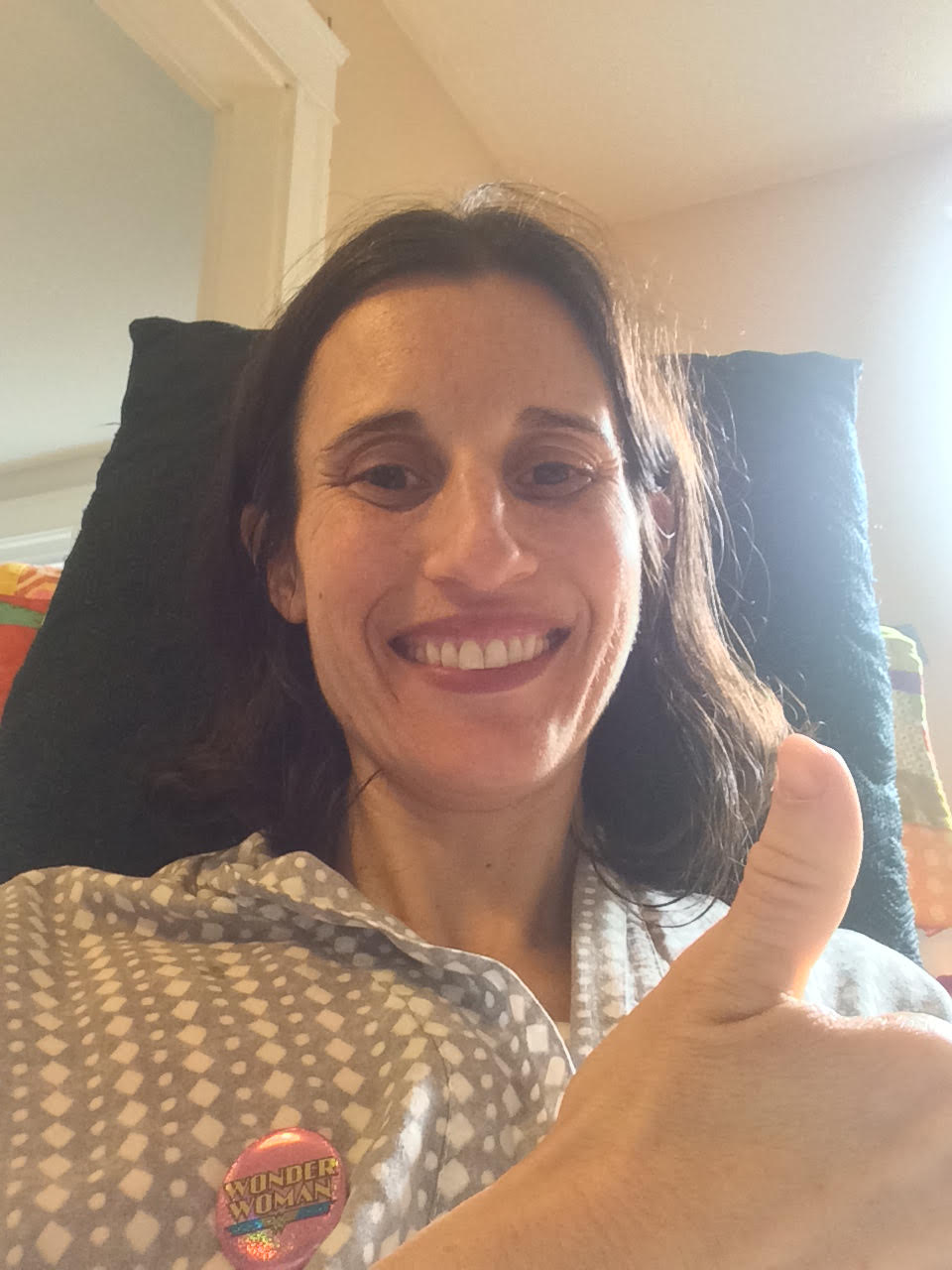
Rebecca returned home to begin her recovery.
“I had a double mastectomy and reconstruction and they put these tubes out of your armpits basically for the first week post-surgery that drains all the gross stuff and then you have to go and to get those taken out. So, my kids, they could see that I looked different and I wasn't able to get around as well. I couldn’t pick them up.“
Six weeks later, Rebecca began her transition back to normal life. However, she would remain on Tamoxifen for nine months.
“I was a rage monster. I wasn't sleeping, I was so tired. It was a really hard transition back to ‘life before’. What was hard for me is like I went back to work and you know, my work is social work, so I'm a nurturer. I'm giving a lot during the day, but I was going back to work. I probably went back too soon. I got six weeks family medical leave and short-term disability, but then I had to go back and I might have looked physically pretty much the same, but I felt so different internally.”
During this time, one of the nurse practitioners at New England Cancer Center connected her with Jess Casey, a breast cancer survivor and Maine Cancer Foundation Board Member. Jess introduced Rebecca to various support groups for breast cancer survivors.
“Talking to other women who had been through it, having them share their experiences with me was super helpful. I was part of this group for women under 40, who had had breast cancer. We got together at El Rayo a couple of times and that was really helpful. There's a closed Facebook group where there's people, new people, all women that have had breast cancer can kind of ask questions like, ‘what bra did you use after? or what would be helpful for me to have post-surgery and has anybody else had this type of chemo and what was your reaction?’ Just having other people that have been through it, that get it. Whether it’s in person, over Zoom, on Facebook, whatever it is. That type of support needs to be given as much value as ‘when are you going to schedule your surgery? When are you going to do this?’, all those other things. That is the most important thing, the kind of human connection around other people that have lived it. I wish that that was given the same amount of weight and attention.”
Rebecca’s family was also there for her at every turn.
“Having people just listen, not try to fix it, but just to be there. We had so many friends that brought food, and helped out with the kids, and my in-laws, we had so much support. I think about like people that don't have that and it breaks my heart. I don't know how people do it. I really don't.”
As Rebecca began navigating survivorship, she began to recover physically as well.
“My daughter, who was three when I was finally cleared to be able to pick her up again, I picked her up and put her on a stool at our breakfast bar. She said, ‘You're like a real mama again!’”
Rebecca never stopped being a real mama. Just as she was there for her son's kindergarten registration, she was there to drop him off on his first day. Just 48 hours after her final surgery.
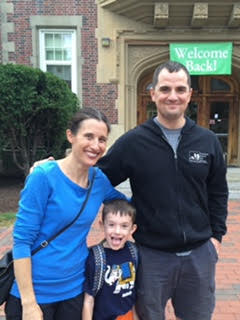
She had her strength back, but it would take some time to trust her body again.
“You're kind of like, ‘okay my body betrayed me once. Could it do it again?’ And I did everything right. I've been a vegetarian, I don't drink, I exercise. I did all the right things and I still got cancer and my body still betrayed me. Could it happen again? I just went to see my doctor because I have this this little freckle and I was like, ‘could this be cancer again?’”
This past May marked seven years since her father’s passing and almost six years since her diagnosis. For years, Rebecca struggled to come to terms with these events. But over time, they began to shape her character and influence her outlook on life.
“I have a bit of like survivor guilt. Like I'm around all these other women who have had so much more treatment and such harder stories, and I feel like I kind of got off easy. Sometimes I feel even kind of embarrassed to talk about my story because it feels so minor in comparison. I do think it wasn't just cancer for me, it was a combination of my dad dying from cancer. I think a result of those two things was getting so depressed that I was nonfunctional and left my job. That's kind of what changed my life. I thought, ‘you have this one life, how are you gonna live it?’
Because of cancer, I realize the fragility of life and I try to infuse as much joy into my life as I can each day.”
For others dealing with a diagnosis, Rebecca has some advice.
“Find other people that have been through it and talk to them. Nobody knows what the future is going to hold, just try to take things day by day.”
In 2019, Rebecca founded a company called Storied, where she helps people capture and preserve their family history through lore and funny tales. The idea came to her while sitting at her father’s memorial service, wondering why people always save the best stories about someone until after they’re gone.
Rebecca Wertheimer’s story is a tale of resilience. Her battle with cancer started in 1988, and in 2016 - she beat it. For her mother, her father, her family, and for herself.
“Dear cancer, you've made your point. We get it and your time is done.”
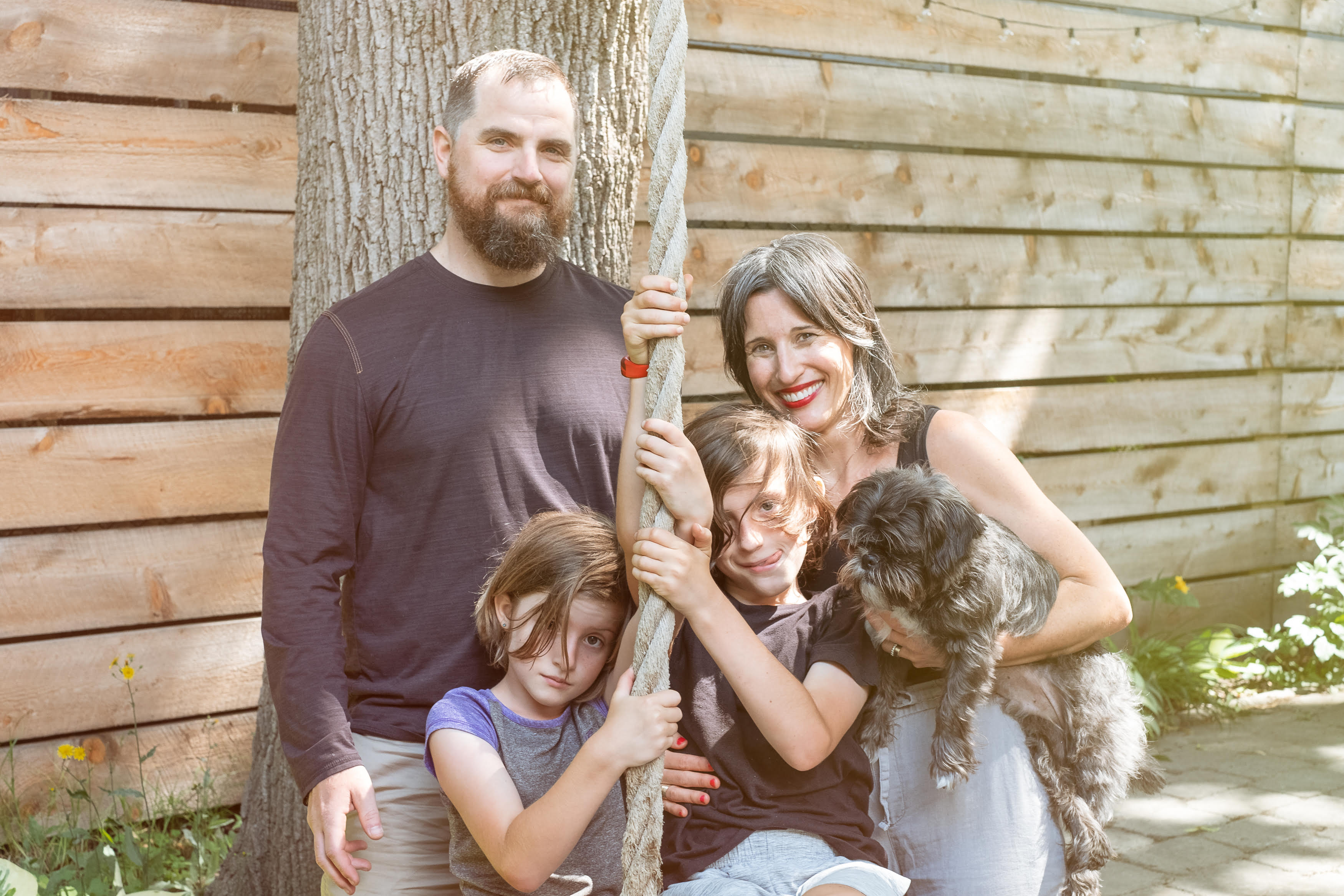

If you're interested in connecting with Rebecca or sharing your story, contact Brian McKeown (brian@mainecancer.org)
To learn more about Storied, visit https://www.storiedme.com/
